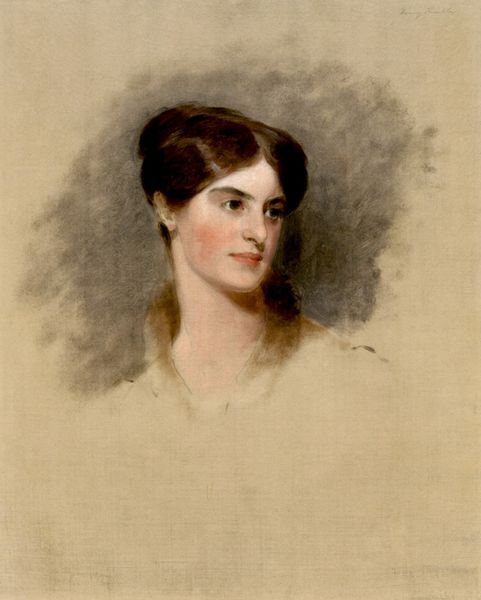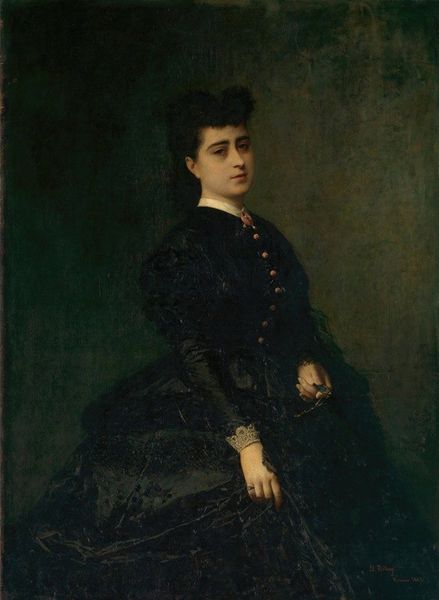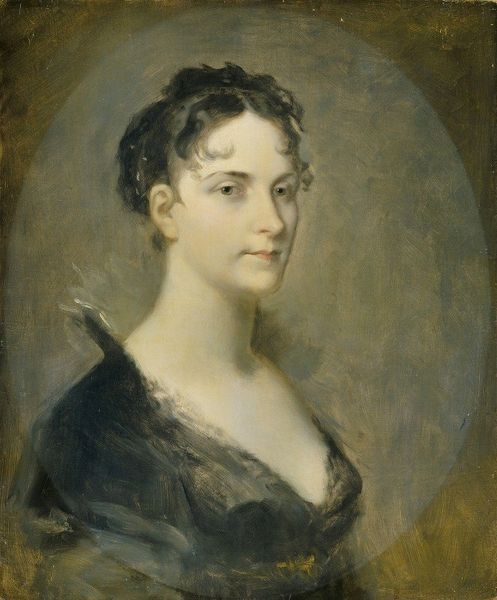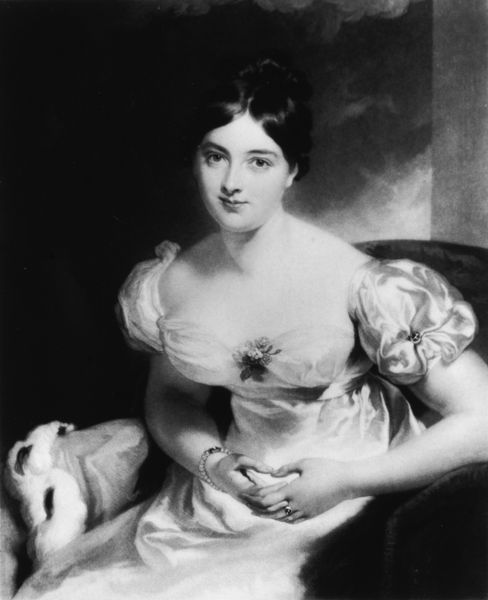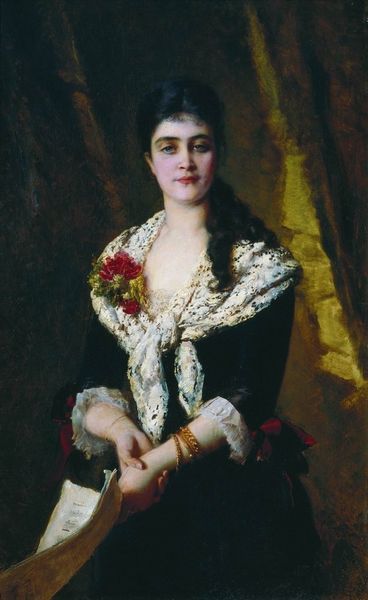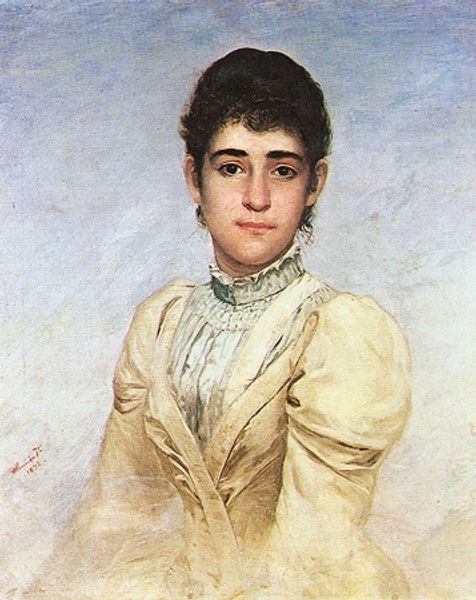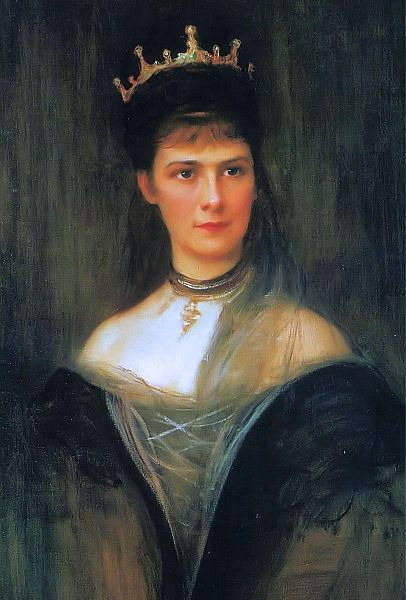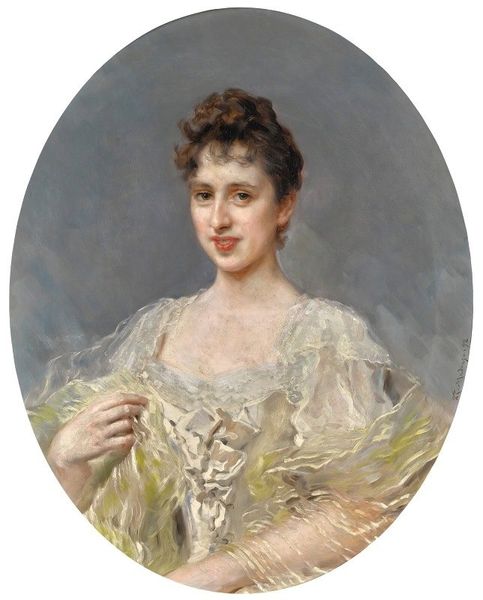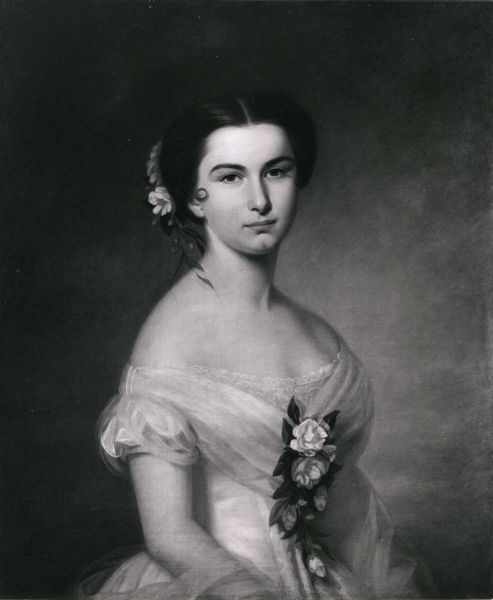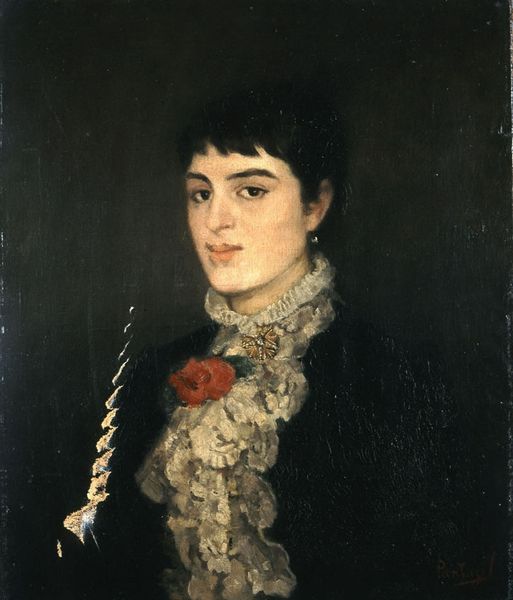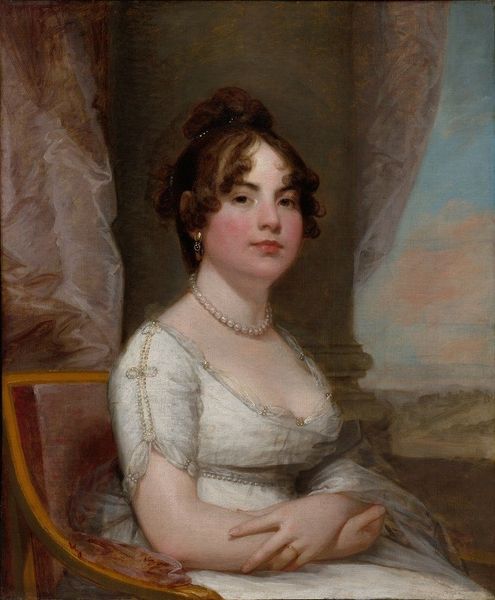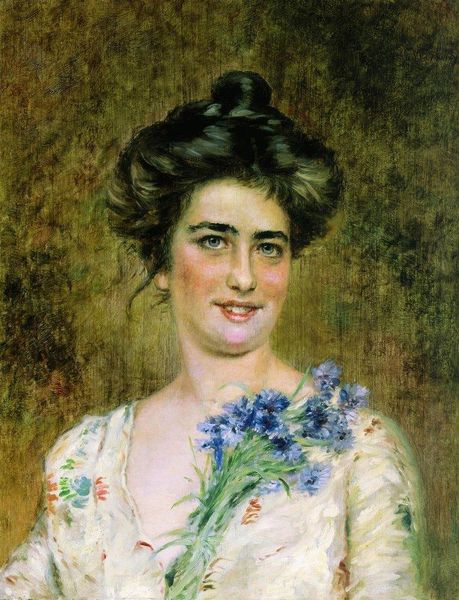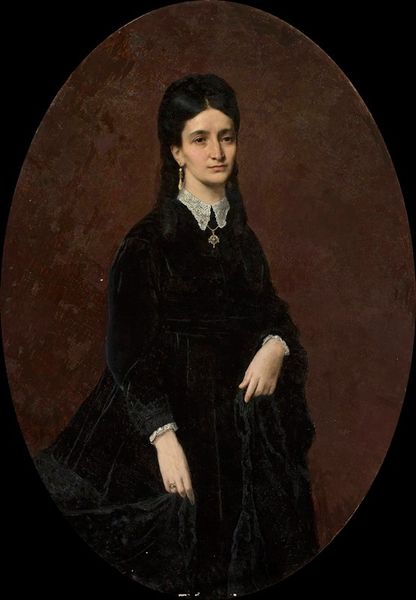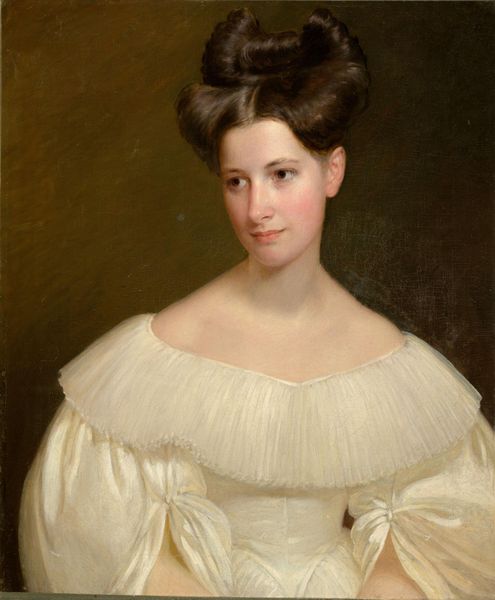
painting, oil-paint
#
portrait
#
painting
#
oil-paint
#
genre-painting
#
history-painting
#
realism
Copyright: Public domain
Curator: Here we have Miklós Barabás's "Portrait of Mrs. István Bittó," painted in 1874 using oil on canvas. Editor: She looks incredibly wistful, doesn't she? There's a slight turn of the head, the hint of a smile, but her eyes carry a certain pensiveness. A touch romantic, almost like she's stepped out of a Jane Austen novel. Curator: Indeed. Barabás was a prominent figure in Hungarian art during the 19th century, deeply involved in defining national identity through painting. Portraiture, especially of the aristocracy and rising bourgeoisie, was one way of asserting cultural presence. Editor: You see that in the detail of the dress, that sort of misty white fabric. It gives her an ethereal quality, as if she's only partially present in this world. There’s a tension there between real presence and a fleeting dream. Curator: Absolutely. Consider the context; the Austro-Hungarian Empire was still a dominant force. Portraiture became a method to celebrate Hungarian individuality, signaling status and national pride. This work situates Mrs. Bittó within a framework of refined society. Editor: I like the color palette too. The subtle variations of white against that subdued backdrop. It feels very interior, very personal. What do you think the blue ribbon signifies, peeking from behind the pearls? A hidden passion? Curator: The blue ribbon could very well have personal meaning, maybe related to familial colors or perhaps a token. That shade pulls the eye deeper, hinting at secrets beneath the surface, but those meanings often remained coded within the sitter's family. Editor: There's such careful crafting, such realism that draws us in. She seems very modern to me in certain aspects, a contemporary gaze trapped in an historical frame. Curator: Her story, inevitably entwined with Hungarian aspirations, resonates still, her quiet presence demanding recognition beyond her era. Editor: I will certainly not forget the pensive Mrs. Bittó, a reminder that individual stories can become potent emblems of bigger shifts in identity.
Comments
No comments
Be the first to comment and join the conversation on the ultimate creative platform.
